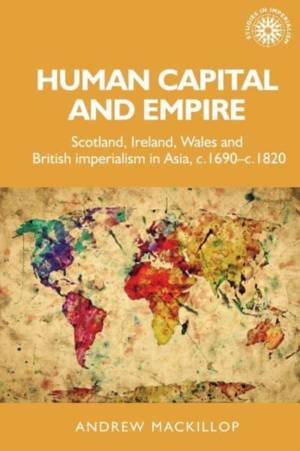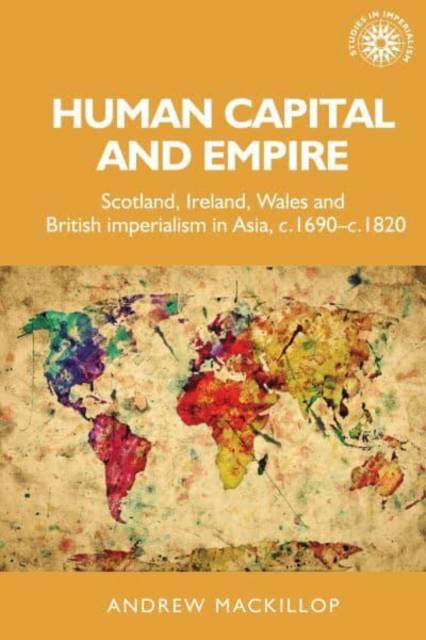
- Afhalen na 1 uur in een winkel met voorraad
- Gratis thuislevering in België vanaf € 30
- Ruim aanbod met 7 miljoen producten
- Afhalen na 1 uur in een winkel met voorraad
- Gratis thuislevering in België vanaf € 30
- Ruim aanbod met 7 miljoen producten
Zoeken
Human Capital and Empire
Scotland, Ireland, Wales and British Imperialism in Asia, C.1690-C.1820
Andrew MacKillop
€ 43,45
+ 86 punten
Uitvoering
Omschrijving
Human capital and empire compares the role of Scots, Irish and Welsh within the English East India Company between c. 1690 and c. 1820. It focuses on why the three groups developed such distinctive and different profiles within the corporation and its wider colonial activities in Asia. Besides contributing to the national histories of Scotland, Ireland and Wales, it uses these societies to ask how 'poorer' regions of Europe participated in global empire. The chapters cover involvement in the Company's administrative, military, medical, maritime and private trade activities. The analysis conceives of sojourning to Asia as a cycle of human capital, with human mobility used to access a key sector of world trade. As well as providing essential new statistical information on Irish, Scottish and Welsh participation, it makes a significant contribution to ongoing debates on the legacies of empire.
Specificaties
Betrokkenen
- Auteur(s):
- Uitgeverij:
Inhoud
- Aantal bladzijden:
- 344
- Taal:
- Engels
- Reeks:
- Reeksnummer:
- nr. 12
Eigenschappen
- Productcode (EAN):
- 9780719070730
- Verschijningsdatum:
- 25/04/2023
- Uitvoering:
- Paperback
- Formaat:
- Trade paperback (VS)
- Afmetingen:
- 156 mm x 234 mm
- Gewicht:
- 480 g

Alleen bij Standaard Boekhandel
+ 86 punten op je klantenkaart van Standaard Boekhandel
Beoordelingen
We publiceren alleen reviews die voldoen aan de voorwaarden voor reviews. Bekijk onze voorwaarden voor reviews.











